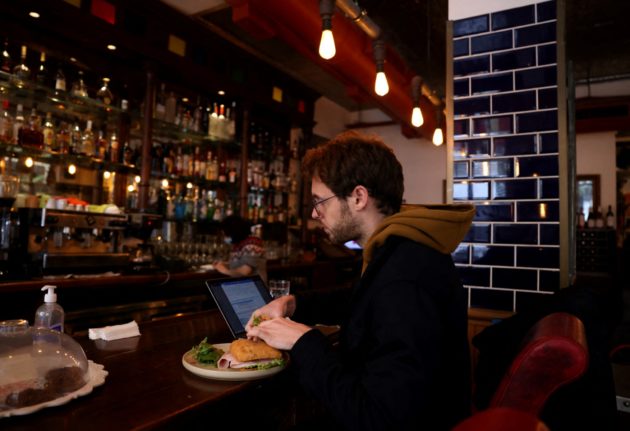The forfait annuel télétravail (annual remote working plan) was launched on September 1st, and can be used on TGV and Intercité trains, but nor local trains or suburban lines.
It allows users to reserve up to 250 journeys on the same line, and promises a 40 percent price reduction compared to a regular annual plan, which allows for 450 journeys.
Unlike the regular season ticket, the new offer for those who work from home two or three times a week is not valid on regional TER trains, meaning many commuters will not be eligible. And while SNCF jointly runs the RER Paris commuter trains to the suburbs alongside RATP, these do not fall under the scheme either, meaning it is mainly destined for those who have a longer journey to work.
Furthermore, it is only valid Monday to Thursday, whereas the full season ticket can be used any day of the week, including the weekend.
For those who do qualify, however, the savings could be significant. The new ticket would cost €331 per month when commuting between Paris and Rennes, compared to €552 for the classic ticket. Those travelling between Paris and Bordeaux would pay €348 instead of €580. You can calculate the price of a season ticket here.
The French government had previously recommended those in both the public and private sectors work from home at least two days a week. That recommendation is no longer included in official guidelines, but many companies have reached agreements with their workers for them to continue splitting their time between their homes and the office.
The rise in remote working has resulted in a rush to buy property in the suburbs and countryside, with property prices rising in rural areas but falling in Paris. If you’re considering moving because you’re no longer needed in the office everyday, and want to know if you’ll qualify for the reduced season ticket, you can consult a map of TGV lines here, and Intercité lines here.



 Please whitelist us to continue reading.
Please whitelist us to continue reading.
Member comments